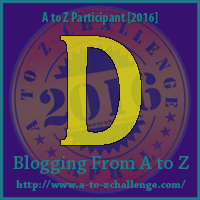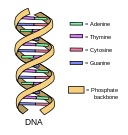 D is for DIGITISATION
D is for DIGITISATION
I think of Digitisation as the Good, the Bad and the Ugly.
The Good?
It’s readily accessible through personal subscription or library access, so long as you have internet access. You can be living remotely from your place of interest and yet still be able to do research (well at least some). Researchers are no longer totally dependent of having time, money and opportunity to access relevant data.
It can offer you a way to find someone in a large city which otherwise you’d have no chance of finding whatsoever unless you knew exactly where they lived. One of my ancestral stories is a case in point. Despite researching for 25 odd years, it was only the digitisation and indexing of the records that, to my utter amazement, revealed a marriage and a baptism in Dublin. It also certainly makes it easier to track those peripatetic ancestors who wander from town to town or county to county.

The Internet Archive book scanner. Image by Dvortygirl – Own work, GFDL, https://commons.wikimedia.org/w/index.php?curid=3606255
The digitisation of newspapers and books around the world, and Australia’s world-leader, Trove, has changed the face of family history. No longer are we restricted to pursuing known facts like births, marriages, anniversaries, funerals, obituaries or “big events”, digitising the newspapers has revealed innumerable “little” stories that bring our ancestors to life. It also assists us with broader research like my East Clare Emigrants, or a genea-friend’s exploration of Western District Families.
Why the Bad?
Well the risk is that when records are digitised, people assume that’s all there is, no other sources exist. They can also assume that each record is complete without checking the background notes to discover what’s included and what’s not. Eg my ancestors aren’t on rootsireland.ie, not because they’ve done a bad job, but because, as yet, the digitisation and uploads isn’t complete.
When we sit laboriously working our way through a microfilm of an old census or parish register, we get a feel for the broader environment in which our ancestors’ lives are lived. We spot mis-spellings, neighbours and other comments. When we head straight for a digital image, it’s all too easy to look to one side or another to place our ancestors in context. While our eyesight might not deteriorate as quickly from looking at registers, which look like they were stored in a shed with the chooks and a leaky roof, we can miss out on a lot.
And the ugly?
The much-lamented tendency to add suggestions provided by program agencies or copy from another’s tree without checking the data. Not only do we miss out on the thrill of the chase, we might well wind up on the wrong genealogical line altogether. There’s also the “happy” but misguided belief that it it’s on the internet it belongs to everyone….simply not the case both from a copyright point of view and a basic courtesy point of view. For example, I’ve seen photos I’ve edited with a copyright marking turn up on trees without acknowledgement or request to use it. Please, ask, ask, ask.
D is for DNA

The latest horse in the genealogical stable, DNA just doesn’t lie. It’s dead easy (pardon the pun), when you can readily identify the paper trail of ancestral connections but quite often the links are a complete mystery. I’m coming to wonder how many of these anomalies relate to those rubbery trees rather than a NPE or non-paternal-event ie a bit of shenanigans behind the scenes, or an adoption.
In my deluded optimism I thought DNA would solve my bigger Irish brick walls….all it’s meant is that (1) I’ve found some great cousins and (2) we have to slog away to find where those connections may have originated.
Again, this is where it becomes important to ensure your research ladder is up the right tree. If not, it will be no surprise that you can’t find your DNA match’s connection to your tree.
Very intense! Keep up the awesome work!
LikeLike
Thanks!
LikeLiked by 1 person
Ah! Digitisation! Yes I’d almost forgotten how painful it was looking at microfilm (crick in the neck) until I went to Archives last month.
LikeLiked by 1 person
I think I’ve been doing it so continuously I don’t mind….it’s my eyes that give up. I do think my patience is diminishing with difficult images.
LikeLike
Unfortunately, reading microfiche makes me nauseous. It must be a sort of motion sickness. I have to take it really really slowly 😦
LikeLiked by 1 person
And sometimes slowly is necessary and other times it would annoying. I can see how it would make you nauseous which would be a deterrent.
LikeLike
I have to be careful not to get lost in the digitised data. There is so much that I keep finding more so can easily put off got to places that hold archives.
LikeLiked by 1 person
I find the deluge of data both intriguing and overwhelming and I’m much more likely to want to keep re-checking.
LikeLiked by 1 person
DNA has been a funny thing. While it might be helpful in breaking through a brick wall, it can also put up another one thanks to those non-paternal events. I think many people are finding out they aren’t who they think they are.
~Visiting from AtoZ
Wendy at Jollett Etc.
LikeLiked by 1 person
I’m starting to think that it might be as much a case of poor research, pinching shaky leaves etc., rather than just NPEs.
LikeLike
Your theme is absolutely fascinating. I come from an environment where we have little or no records of our ancestors (beyond a span of about 70-100 years) which is quite unfortunate!
LikeLiked by 1 person
That would be so frustrating if you wanted to learn more about family. Do you have better oral history?
LikeLike
Our oral history (at least for anybody who isn’t royalty or part of a special group) only goes three generations up and so every generation only knew about their immediate parents and grand parents. It’s a pity!
LikeLike
That is a shame!
LikeLike
DNA has certainly changed research and created more questions than answers!
LikeLiked by 1 person
It has for me, quite often, and the known links are easy peasy.
LikeLike
Even though I haven’t looked at microfiche for years, I still end up going through 50 or more pages of digital of census records looking for those who hide. And it does give me a more intimate view of the community. Sometimes I find someone else I “know” in there.
Finding Eliza
LikeLiked by 1 person
And that’s the voice of experience that you look through neighbouring pages.
LikeLike
An excellent summary of the pros and cons of digitisation. I agree with every word. We often get asked “Isn’t it all online?” No, it most definitely isn’t! And never will be as there is just too much stuff and not enough time and money to digitise it all. We have Ancestry moving into our office this month to start work on some digitisation. They will be with us for up to two years and what they will scan will be just a tiny, tiny fraction of what we have.
LikeLiked by 1 person
Wow! Two years! Funny how we never think how Ancestry goes about digitising those records. That must be a bit disruptive to day-to-day business.
LikeLike
Two years! Wow! Funny how we never think about the process of the digitisation. AS much as being digitised there’s a mountain still out there and they are doing the low hanging fruit.
LikeLike
Great informative post – I especially like your take on digitisation for research purposes. But I do love to find the primary source and hold it in my hand (if available). Thank you for sharing.
LikeLiked by 1 person
I couldn’t agree more about holding a document.
LikeLike
I can picture the research ladder leading up the wrong tree. We need an image for that.
LikeLiked by 1 person
I used one like that under A 🙂
LikeLiked by 1 person